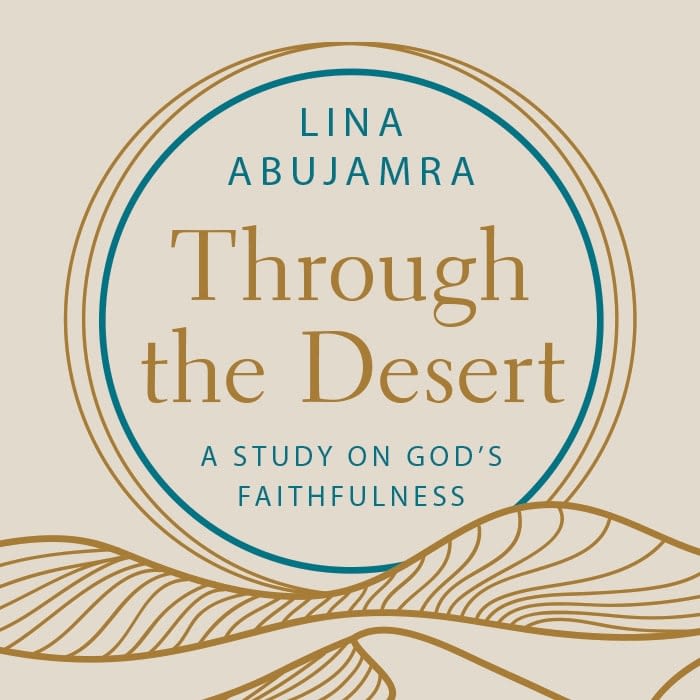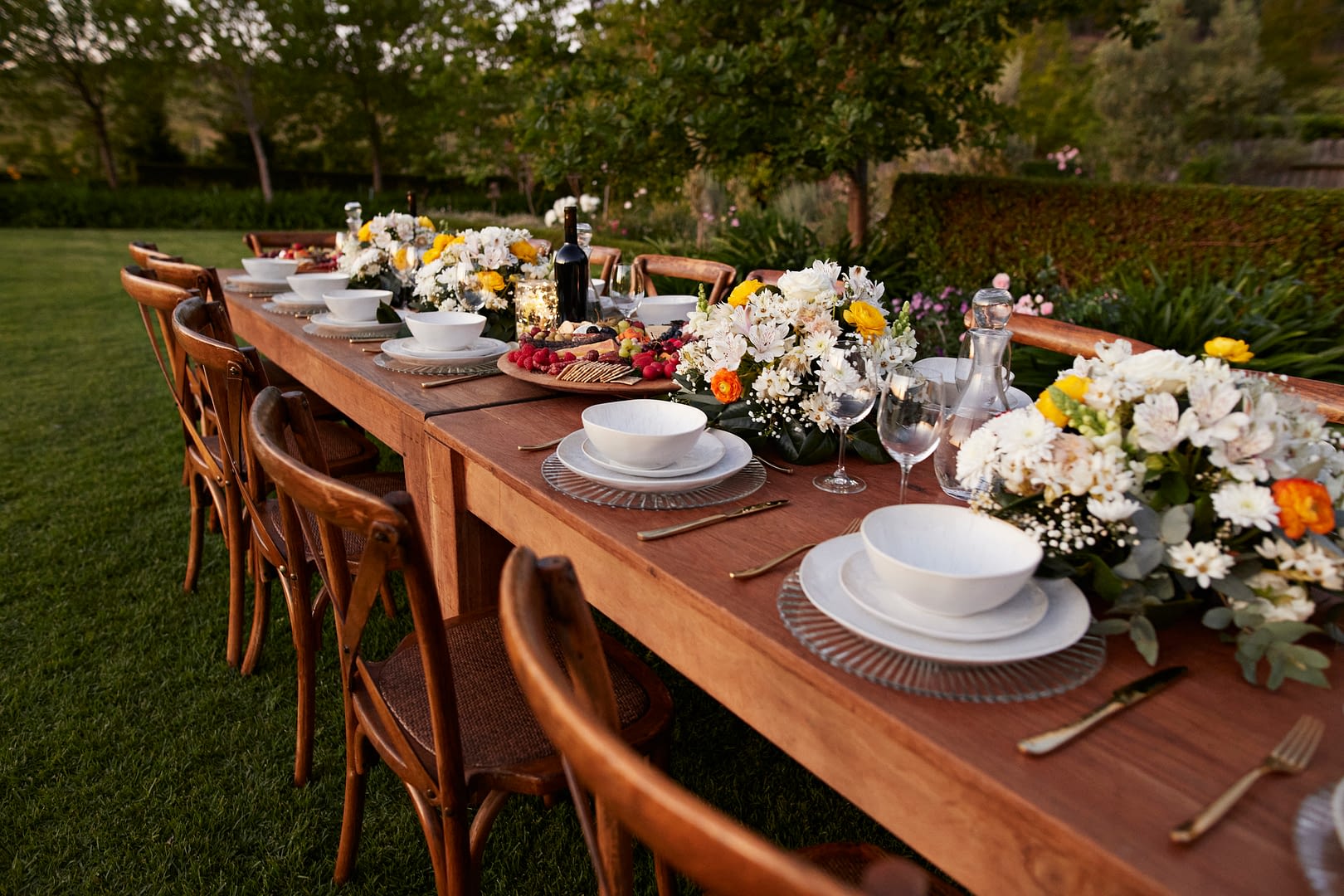The virtuous woman of Proverbs 31 is formidable and impressive. Her accomplishments and commitment to her family are often held up as the ideal Christian women should emulate.
In college, I read this Scripture passage and felt intimidated. The standard looked even more unreachable when I became a wife and mother. I’ve often wondered—is the Proverbs 31 woman truly who I am supposed to become? If so, how?
Let’s examine Proverbs 31 together. First, we will evaluate the structure of the text within its own historical and cultural context. Then, we will consider how it applies to our lives today.
Proverbs 31 Contains Two Poems
The final chapter of Proverbs actually contains two poems. The first is about a noble king, while the second is an acrostic poem—based on the Hebrew alphabet—about a noble wife.
In an oral culture during a time when books were handwritten and rare, various tools were used to help people remember a passage, like putting the verses to music (the Psalms) or using successive letters of the alphabet.
Proverbs 31:1-9: The Good King
The first poem (vv. 1–9) begins by sharing the author of the poems and their origin. According to Kenneth E. Bailey, author of Jesus Through Middle Eastern Eyes: Cultural Studies in the Gospels, King Lemuel of Massa, an Arab sage, records both poems. Lemuel, which means dedicated to God, first learned them from his mother (v. 1).
According to the authors of The IVP Bible Background Commentary, we have no other known record of a mother’s wise sayings in the ancient Near East (570).
The first poem describes the attributes of a good king. For example, King Lemuel’s mother instructs him to:
- Show restraint regarding women (v. 3) and intoxicants (v. 4).
- Uphold the laws and protect the poor (v. 5).
- Speak for those who can’t speak for themselves (v. 8).
- Judge fairly (v. 9).
- Defend the rights of the poor and needy (v. 9).
This section reminds us that those in power have a responsibility to ensure the well-being of those under their care—a theme we’ll see repeated in the second poem.
Proverbs 31:10-31: The Proverbs 31 Woman
The acrostic poem of the courageous wife (vv. 10–31) paints a picture of the woman a good king should marry.
This woman is strong and heroic, and Lemuel’s mother taught him that she is “more precious than jewels” (v. 10). Her bride-price would be exceptionally high. She is considered a teacher, known for her wisdom and kindness, and, like her mother-in-law, she shares her insight with others (v. 26). Her expertise spans from successfully managing her own business (vv. 18, 24), to buying real estate then farming the land (v. 16), to wisely handling issues in her household (v. 27). Her business endeavors provide essentials to her community, including clothing (v. 24) and food (v. 16).
How the Proverbs 31 Woman Does It All
The Proverbs 31 Woman’s wide-ranging achievements greatly exceed anything allowed to most women in Mesopotamia during this time period (Walton, Matthews, Chavalas, 570).
Her freedom likely stems from two sources. First is her privileged status in the nobility—she and her husband, who is the king, wear expensive purple or scarlet clothing (vv. 21–22), and she has maidservants (v. 15). Secondly, and perhaps even more importantly, she has a husband who cherishes her (vv. 28–29) and allows her to reach her full potential.
The king’s wife contributes substantially to the economy and well-being of both her family and community. She is dressed appropriately for hard work (literally “she girds her loins”), and her arms are strong and capable (v. 17). The line associated with the Hebrew letter waw (v. 15) can be translated “and she arises [like a lioness] while it is still night to provide prey for her household” (Collection VII). This woman, like her husband, “reaches out her hands” to the poor and needy (v. 20), who benefit from her diligence and profits. She ensures that her children and husband are clothed warmly in expensive cloth, protected from the snow (v. 21).
In her many pursuits, she does not neglect her husband and children. “Her children rise up and call her blessed; her husband also, and he praises her” (v. 28). Because she is not lazy or idle (v. 27), and because she fears God (v. 30), she laughs at the future, knowing she is well-prepared and well-loved (v. 25). The call to “give her the fruit of her hands” (v.31) echoes through the centuries—give her equal pay for her work. Similar to the beautiful and costly cloth, she is clothed in strength and dignity (v. 25), and she joins her husband to promote justice and righteousness in their land.
Common Misconceptions about the Proverbs 31 Woman
A few verses are easily misunderstood when separated from their culture and time.
The phrase “Her lamp does not go out at night” (v. 18) does not mean she never sleeps. In a world without electricity, the darkness of night was both impenetrable and dangerous. In a well-ordered household with adequate money, the lamp burned all night, usually tended to once or twice by the wife who added oil as needed to keep the light burning. In verse 22, we see that not only does she care for her household, community, and the poor—she also cares for herself, making luxurious bed coverings for her room and valuable fine linen garments dyed purple (Waltke, De Silva, Collection VII).
And when her husband “sits among the elders of the land” at the gate (v. 23), this does not mean he relaxes and enjoys himself while she does all the work. The gate signified the place of a city’s authority and power, while sitting was a symbol of teaching (Waltke, De Silva, Collection VII). This couple is well-respected and wields great influence.
I’ve always loved verse 30, which goes with the Hebrew letter shin: “Charm is deceitful, and beauty is vain, but a woman who fears the LORD is to be praised.” This woman is no trophy wife, valued only for her outward appearance. Her beauty, wisdom, and strength flow directly from her fear of God. Psalm 25:14 says, “The friendship of the LORD is for those who fear him.”
Through her friendship with God, she slowly becomes more like Him, growing more lovely as she ages and draws nearer to Him. She moves with confidence through her days, and she is praised even by those with power at the gates (v. 31).

Putting the Proverbs 31 Woman into Context
Extracting and applying wisdom from ancient literature should be done carefully. This woman, unlike most of us, was a queen with far more resources than the average middle-class woman today. At the same time, her culture was primarily agricultural.
In that time, if you wanted to eat, you grew food. If you wanted wool for winter clothes, you sheared sheep. The Proverbs 31 woman had servants to help with many chores, of course, but application must account for these cultural differences.
1. The Proverbs 31 Woman’s Husband Trusts and Celebrates Her
A few things stand out to me. First, this woman’s integrity and resourcefulness receive distinct reactions from her husband: he trusts her (v. 11) and lavishes praise on her (vv. 28–29). King Lemuel is not intimidated by a strong, competent wife. He does not insist that the man must be the only contributor toward family finances. He does not rigidly relegate her to cooking, cleaning, and sleeping in his bed. Though he is a literal king, he does not expect her to constantly defer to him or wait for him to make the decisions.
Instead, he rightly understands that a strong partner benefits not only him, but also his children and entire community. They rise—or fall—together. He encourages her to pursue her dreams, knowing that she “does him good…all the days of her life” (v. 12). If she flourishes, so will he and their children.
2. The Proverbs 31 Woman is Disciplined
Second, this woman exhibits impressive discipline. She doesn’t take advantage of her privileged status, demanding that everyone else do the work and serve her. She uses her resources—including her time—carefully. She has goals and makes plans to reach them. She also clearly prioritizes the well-being of her family, even in endeavors outside the home. Both her husband and children know that she loves and cares for them.
3. The Proverbs 31 Woman Cares for the Poor
Third, she and her husband work together for the good of those in their care, including the poor and needy. Caring for the downtrodden and powerless is a vital theme throughout both the Old and New Testaments. In caring for the poor and stooping to help those in need, they foreshadow Jesus. They see the inherent worth of people and ensure that they thrive. In short, they do what we were created to do: love and be loved.
The Call to Love
Ultimately, one’s aim in life is circumscribed by the greatest commandment, regardless of gender.
Jesus told us what we are all called to do: “You shall love the Lord your God with all your heart and with all your soul and with all your mind. This is the first and greatest commandment. And a second is like it: You shall love your neighbor as yourself” (Matt. 22:37-39).
The universal call to love necessarily looks different for different people, taking shape in unique ways depending on life circumstances. But regardless of culture, time period, gender, or race, love is what we collectively were created to both do and enjoy.
If our highest calling is to love, why isn’t the world a better, safer, more enjoyable place? If love is meeting the needs of others even at great cost to ourselves—if love is wanting good for someone and then doing that good—then what on earth has gone wrong?
When I look around me, I see glimpses of beauty and love. But I also see rampant corruption, war, abuse of power, hatred, evil, and death. When I look honestly inside myself, I see encouraging sparks of love. But I also see selfishness, jealousy, evil, and fits of anger.
It seems we have fallen short of our calling. And it seems we, and indeed all of creation, are paying the price.
And that’s where Jesus comes in.
Jesus: The Ultimate Example of Godliness
Though all have sinned and fallen short of the glory of God (Rom. 3:23)—though we often look so different from the loving beings we were created to be—God sent His Son Jesus to rescue us and make all things new. Jesus knows we can’t fix this mess alone, and He knows we can’t always love Him or others on our own.
I was never supposed to look exactly like the Proverbs 31 woman. Instead, I am called to look like Jesus. That means the standard is even higher, but I think that’s a good thing, because it confronts us with the reality of our desperate need for God’s grace.
Jesus is the image, or the exact representation, of God (Col. 1:15, Heb. 1:3), and God is love (1 Jn. 4:16). Both man and woman were made in God’s image (Gen. 1:27), and though that image was tarnished by the fall, God’s Spirit is remaking us so that we again “bear the image of the man of heaven” (1 Cor. 15:49). My transformation into a reflection of God’s beauty and love ultimately depends on the work of His Spirit, not on my own efforts.
The Proverbs 31 woman joins other strong and praiseworthy women in the Bible—women like the prophetess Huldah, the midwives Shiphrah and Puah, Deborah, Esther, and Ruth. All of these women feared God and reflected His image in some way. They all loved. Despite cultural constraints and sometimes ominous circumstances, they resolutely walked the paths before them, influencing entire nations for generations.
Through Proverbs 31 and other verses about women in the Bible, we are inspired to persevere in the slow, sometimes monotonous process of becoming who we were created to be, trusting in the One who walks with us and directs our paths.
Ready to Be Inspired by Even More Great Women of the Bible?
After you’ve had a chance to prayerfully reflect on the Proverbs 31 Woman in the Bible, be sure to check out these related articles for even more encouraging stories and lessons from the famous women of the Bible!
- What Does it Mean to Be a Virtuous Woman?
- The Courage of Mary
- Four Inspiring Lessons from the Samaritan Woman at the Well
Visit this link to see a complete list of all the Inspiring Women of the Bible we’ve covered so far on the Esther Press website. Alternately, find our favorite Bible Studies about the various Women in the Bible here.
Kenneth E. Bailey, Jesus Through Middle Eastern Eyes: Cultural Studies in the Gospels (Downers Grove, IL: InterVarsity Press, 2008).
Bruce K. Waltke and Ivan D.V. De Silva, Proverbs: A Shorter Commentary (Grand Rapids, MI: William B. Eerdmans Publishing Company, 2021), eBook, Collection VII.
John H. Walton, Victor H. Matthews, and Mark W. Chavalas, The IVP Bible Background Commentary: Old Testament (Downers Grove, IL: InterVarsity Press, 2000).




